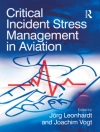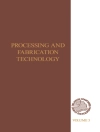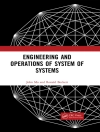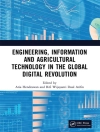- Provides a comprehensive review of the recent advances in agricultural robotics, such as advances in sensing and perception, as well as technologies and actuation
- Addresses our understanding of the social, ethical and economic aspects of agricultural robotics, including the regulatory frameworks and standards required to authorise their adoption
- Provides examples of the practical application of agricultural robotics in an array of agricultural settings, from greenhouse and orchard cultivation, to meat/fish processing
Tabela de Conteúdo
Part 1 Technologies: sensing and perception
- 1.Advances in visual perception for agricultural robotics: Gert Kootstra, Wageningen University, The Netherlands;
- 2.Advances in world modeling for agri-food robotics: Jordy Senden, Elena Torta and René van de Molengraft, Eindhoven University of Technology, The Netherlands; and Herman Bruyninckx, Eindhoven University of Technology, The Netherlands, Katholieke Universiteit Leuven and Flanders Make, Belgium;
- 3.Advances in local perception for orchard robotics: Jose Blasco, Centro de Agroingeniería – Instituto Valenciano de Investigaciones Agrarias (IVIA), Spain; and Francisco Rovira-Más, Agricultural Robotics Laboratory (ARL) – Universitat Politècnica de València, Spain;
- 4.Advances in machine learning for agricultural robots: Polina Kurtser, Örebro University and Umeå University, Sweden; Stephanie Lowry, Örebro University, Sweden; and Ola Ringdahl, Umeå University, Sweden;
Part 2 Technologies: operational aspects
- 5.Autonomous navigation and path planning for agricultural robots: John F. Reid, University of Illinois at Urbana-Champaign, USA;
- 6.Advances in human-robot collaboration in agricultural robotics: George Adamides, Agricultural Research Institute, Cyprus; and Yael Edan, Ben-Gurion University of the Negev, Israel;
- 7.Implementing a digital twin for flexible operation of agricultural robotics: Frits K. van Evert, Trim Bresilla, Ard Nieuwenhuizen, Bram Veldhuisen and Jochen Hemming, Wageningen University & Research, The Netherlands; Giannis Avgoustakis, Spyros Fountas, Michael Koutsiaras and Nikos Mylonas, Agricultural University of Athens, Greece; Suzanne Baron, Agricultural Robotics and Automatization, France; Thanos Dritsopoulos and Markos Legas, Pegasus, Greece; Han Hilbrands and Jeroen Wolters, Smart Agri Technology BV, The Netherlands; Klaas Jan Hommes, Abemec BV, The Netherlands; Panagiotis Karagiannis, Sotiris Makris and George Michalos, University of Patras, Greece; Dimitrios Paraforos and Galibjon Sharipov, University of Hohenheim, Germany; Søren Marcus Pedersen, University of Copenhagen, Denmark; Bertrand Pinel, Terrena Societe Cooperative Agricole, France; Mladen Radisic, Foodscale Hub, Serbia; Juan F. Rascón and Carlos Rizzo, Eurecat, Centre Tecnològic de Catalunya, Spain; Raul Sanchez, Serrater, Spain; Alea Scovill, Agro Intelli, Denmark; Oriol Serra, Giropoma, Spain; and Josep Vidal, Teyme, Spain;
- 8.Advances in connectivity and distributed intelligence in agricultural robotics: Liisa Pesonen, Natural Resources Institute Finland (Luke), Finland; Daniel Calvo Alonso, Atos, Spain; Juha Backman and Jere Kaivosoja, Natural Resources Institute Finland (Luke), Finland; Jarmi Recio Martinez, Atos, Spain; and Juha-Pekka Soininen, VTT Technical Research Centre of Finland, Finland;
- 9.Improving fault detection and isolation in agricultural robotics: Nicolas Tricot, Mahmoud Almasri and Roland Lenain, Université Clermont Auvergne, France;
Part 3 Technologies: actuation
- 10.Advances in mobility platforms for agricultural robots: Renato Vidoni and Giovanni Carabin, Free University of Bozen-Bolzano, Italy; Giuseppe Quaglia and Andrea Botta, Politecnico di Torino, Italy; and Giulio Reina and Rocco Galati, Politecnico di Bari, Italy;
- 11.Advances in grasping techniques in agricultural robots: George Kantor and Francisco Yandun, Carnegie Mellon University, USA;
- 12.Advances in soft grasping in agriculture: Ali Leylavi Shoushtari, Wageningen University & Research and Wageningen Robotics, The Netherlands;
- 13.Advances in agricultural unmanned aerial vehicles: focus on sensing applications: Tarin Paz-Kagan, Ben-Gurion University of the Negev, Israel;
Part 4 Social, ethical and economic aspects
- 14.Regulatory frameworks and standards for agricultural robotics in the European Union: Andrea Bertolini and Rocco Limongelli, Scuola Superiore di Studi Universitari e di Perfezionamento Sant’Anna – Istituto Dirpolis, Italy;
- 15.Economics of agricultural robotics: James Lowenberg-Deboer, Harper Adams University, UK;
- 16.Social and ethical considerations for agricultural robotics: Kirsten Ayris, University of Reading, UK; and David Christian Rose, Cranfield University, UK;
Part 5 Applications
- 17.Advances in the use of robotics in crop phenotyping: M. Wattad, Technion – Israel Institute of Technology, Israel; V. Alchanatis, Volcani Institute – Agricultural Research Organization, Israel; Y. Edan, Ben-Gurion University of the Negev, Israel; S. Shriki and T. Sandovsky, Volcani Institute – Agricultural Research Organization and Ben-Gurion University of the Negev, Israel; and S. Filin, Technion – Israel Institute of Technology, Israel;
- 18.Advances in the use of robots in field crop cultivation: Avital Bechar, Agricultural Research Organization, Israel; and Dionysis Bochtis, Institute for Bio-Economy and Agri-Technology (i BO), Greece;
- 19.Advances in the use of robotics in orchard operations: Manoj Karkee and Qin Zhang, Washington State University, USA; Uddhav Bhattarai, University of California Davis, USA; and Xin Zhang, Mississippi State University, USA;
- 20.Advances in the use of robotics in greenhouse cultivation: Jochen Hemming and Jos Balendonck, Wageningen University & Research, The Netherlands;
- 21.Advances in the use of robotics in livestock production: Kees Lokhorst, Wageningen Livestock Research, The Netherlands; and Tomas Norton, Katholieke Universiteit Leuven, Belgium
Sobre o autor
Dr Kees Lokhorst is senior scientist and specialized in Precision Livestock Farming, Robotics. He coordinates the ag ROBOfood project and is the coordinator of the Dutch agrifood TEF. He is involved in several national and international research projects (e.g. WASP, Bio Business, EU-PLF, Io F2020, ERANET ICT Agri, 4D4F, EIP focus group on mainstreaming precision agriculture, Smart Dairy Farming) concerning transition processes in (animal) farming systems. Research is focused on the possibilities of ICT and sensor information to support farmers in their daily management.












